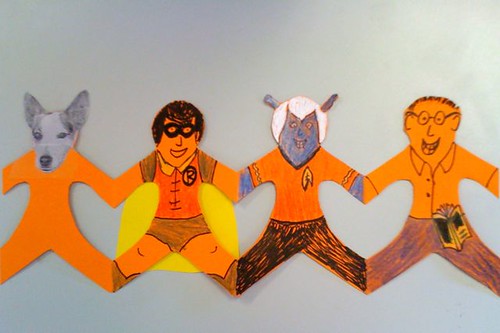I’m fortunate enough to share the same literary agent as Tara Moss, the successful Canadian Australian novelist, model and TV celebrity. Tara has decided to get behind the concept of “World Book Day”, and is happy for me to pass on her recent Facebook posts about it, should you wish to mobilise and get something happening in Australian schools. She says:
“Let’s celebrate ‘World Book Day’ on April 23, and encourage it to become a recognized and significant day on the Australian calendar.
“The connection between 23 April and books was first made in 1923 by booksellers in Catalonia, Spain, as a way to honour the author Miguel de Cervantes who died on that day. This became a part of the celebrations of Saint George’s Day (also 23 April) in the region, where it has been traditional since the medieval era for men to give roses to their lovers and, since 1925, for the woman to give a book in exchange. Half the yearly sales of books in Catalonia take place around ‘World Book Day’, with over 400,000 sold (and about 4 million roses). In 1996, the United Nations (UNESCO) declared April 23 ‘World Book and Copyright Day’ and, in 1998, Tony Blair launched ‘World Book Day’ in the UK, where there have been strong programs each year since, involving booksellers, schools, publishers, parents, writers and readers.
“Can we be next?
“Books are key in my life, and I believe that an officially recognized and notable celebration of ‘World Book Day’ in Australia could go some way to ensuring a future where books continue to hold an important place in Australian lives.
‘If you share my interest in making this happen, please join this [“Facebook”] group, and give a book to someone you love on April 23. (The rose, I dare say, is optional.)
“… Let’s get the word out there so that ‘World Book Day’ becomes a notable date on the Australian calendar each year. ‘Book Day’ eclipses ‘Valentine’s Day’ in Spain, so I say, ‘Enough with the Hallmark greetings. Let’s get all of Australia to give their love a book on April 23 instead. Am I asking too much?’
“Happy reading, Tara Moss.”
http://www.new.facebook.com/group.php?gid=61720981519&ref=mf
So there you go! Now, of course, the “Facebook” group won’t be accessible through many educational institution firewalls, but if you celebrate in your school, post your ideas here and I’ll relay them back to Tara. Maybe all those great “Library Lovers” ideas from February 14 can be recycled more than once a year?


